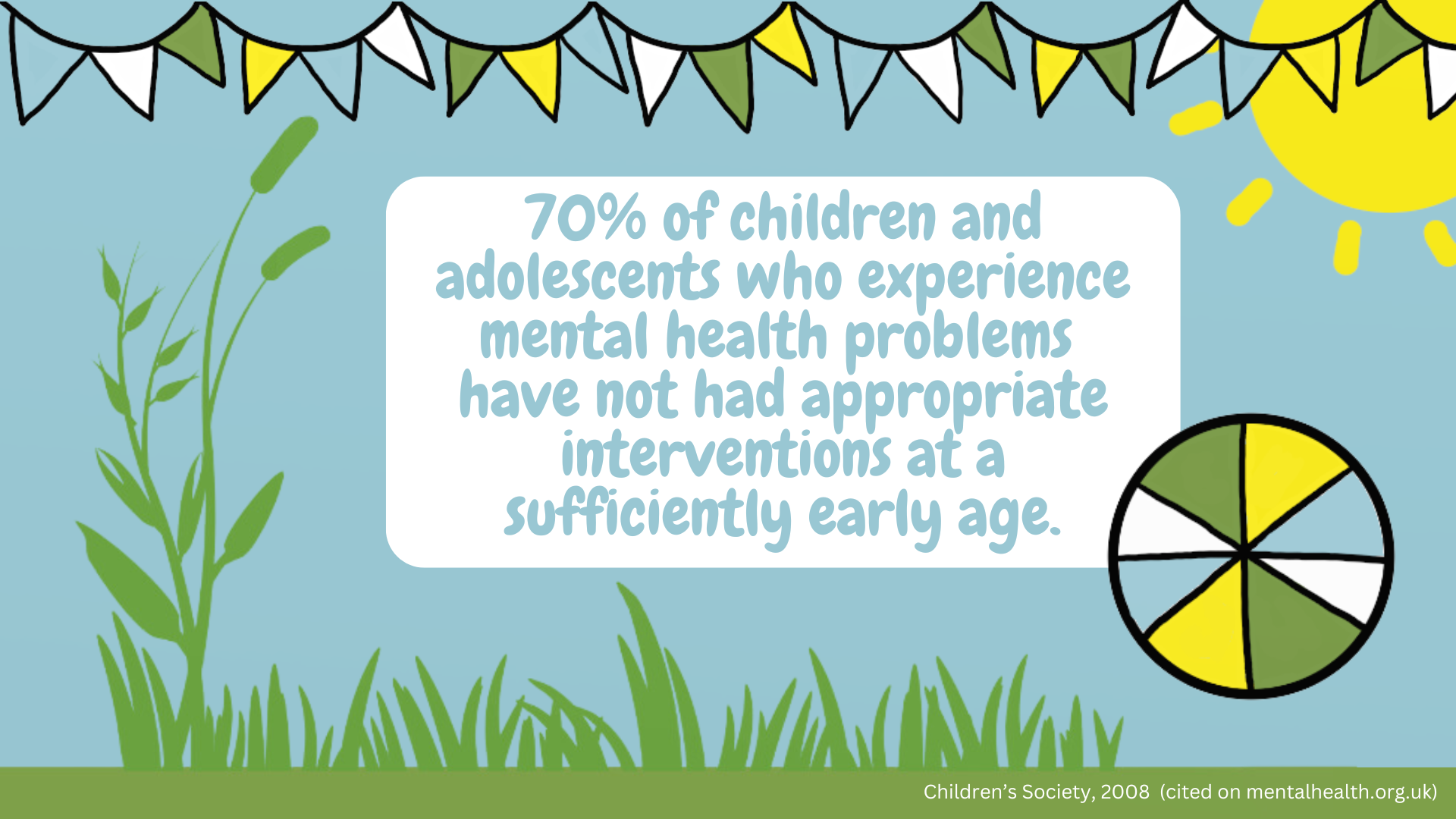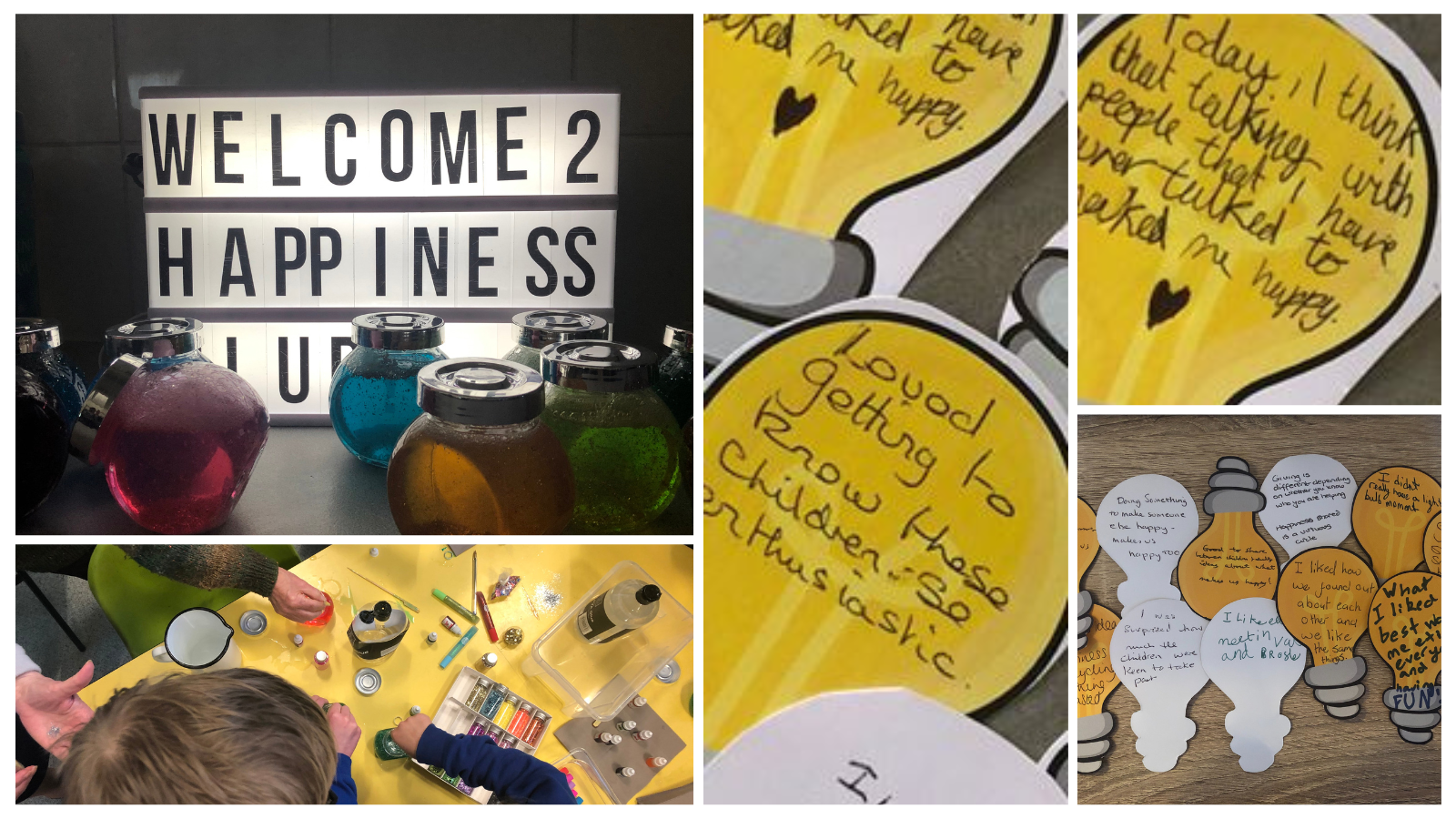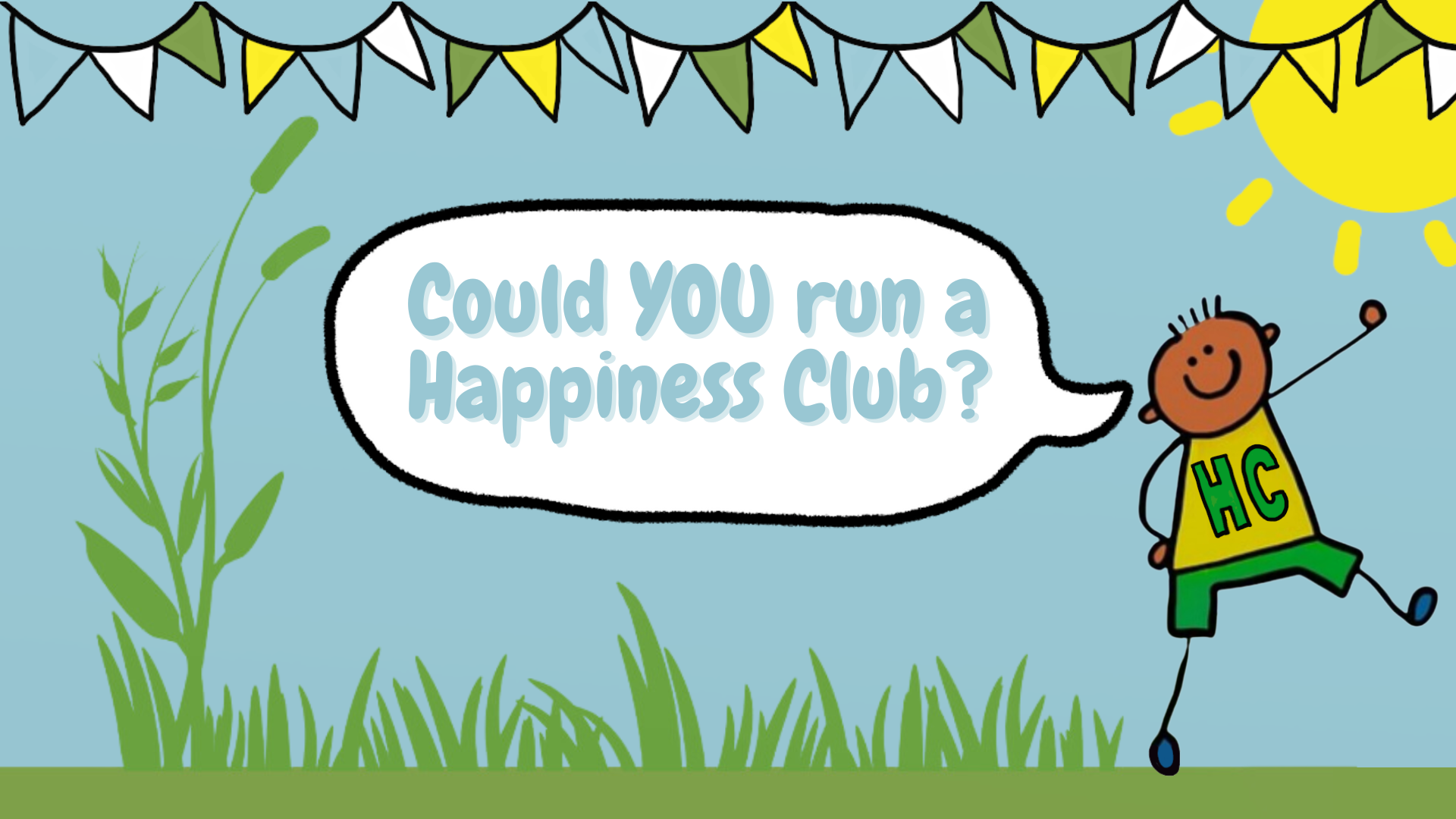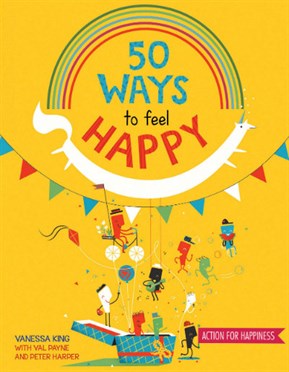
Who is this for?
If you are a church who wants to partner with your local schools and community to promote the emotional, mental, spiritual, and physical well-being of children, then this resource page is for you and Happiness Clubs can help!
Who facilitates the training?
Happiness Clubs are a partnership between Peterborough Diocese, Hope Together and Action for Happiness. The training is facilitated by the Diocesan Children, Young People and Families (CYPF) team, in collaboration with Hope Together. Action for Happiness have also developed bespoke training on the Ten Keys to Happier Living.
Why a partnership between school and church?
Peterborough Diocese is committed to looking through the Growing Faith lens, which places children and young people at the heart of all our mission and ministry decisions. The research shows that when church-home-school work in partnership, with the child at the centre, that child is more likely to thrive.
The Talking Jesus research from Hope Together tells us that most people come to faith under the age of 18 which again means that the church-home-school partnership is key.
Happiness Clubs for all?
Happiness clubs provide a tool kit for children, parents, teachers and our churches to develop well-being in a time when we know that poor mental health assaults so many. It is fun, joyful and accessible, and is not dependent upon the child having a faith or not.
Peterborough Diocese has worked with Action for Happiness over the last few years, piloting Happiness Clubs in schools. Volunteers from churches have been trained to run these clubs in primary schools. It is a wonderful opportunity for schools and churches to work together to nurture the wellbeing of children
A happiness club is where children and volunteers from churches explore 10 Keys to Happier Living from Action for Happiness. It is fun, interactive,
practical and life affirming.
“I have been working with a year 3 cohort of 8 children.
I am delighted with how it has been received by the children, when I arrived for my last session,
they came running up to me with squeals of
"Mrs N…, we've been looking forward to this all day"
(Grandma running a happiness club)
Statistics show us that many children and young people are struggling with poor mental health. In 2021 24% more children were in contact with child and young people’s mental health services than in 2020 (Source – The Health Foundation 2022). Churches can partner with schools to explore ahead of a crisis, how children can build in some good habits that can help them remain mentally and emotionally healthy through the ups and downs of life.
Claire Barber talks about running a Happiness Club in St Andrew’s School, Kettering

I’m not an expert. Can I run a Happiness Club?
You do not need to be an expert to run a Happiness Club. As long as you have the necessary safeguarding measures in place and both your church and your school are supportive, you will have all you need to run a happiness club. We have all that you need. Join us online (Zoom) to learn how to run a Happiness Club on the following dates - Click here to email the CYPF team for more information.
16 March 2026 12:30pm
13 May 2026 12:00pm
13 May 2026 7:30pm
30 September 2026 12:00pm
Who might run a Happiness Club?
You might be a toddler group leader, a volunteer, a paid worker, a grandma, a retired teacher, a children’s helper in church. You need to be prepared to live out the Ten Keys to Happier Living in your own life and be willing to share them with the children. It’s also important to find someone to partner with you.
Each club needs to be shaped to fit the circumstances of the school, but the training and resources will give you all you need to run your club.
“The 10 keys is something that I have been trying to integrate into our planning for all of our groups since we did our training.”
(Youth worker)
“The materials and resources provided were excellent and the padlet with additional resources meant that there is plenty of stuff to run the group without having to search for things which is fantastic, especially for those who are not children's workers, it allows everyone to share resources.”
(Children and Families’ Worker)
 Step 1: Purchase the book ’50 Ways to Feel Happy’
Step 1: Purchase the book ’50 Ways to Feel Happy’
Step 2: Grab a notebook to jot down your ideas as you watch the training
Step 3: Watch the 8 Training videos from Action for Happiness that introduce the 10 keys, hosted by Peter Harper and Val Payne. This takes about an hour in total, but is broken into short 10–12-minute chunks. Don’t rush. Take your time to process what you hear and apply it to your life before you move on. Remember, Happiness Clubs work best when we are modelling the Ten Keys to the children!
Step 4: Watch the film hosted by Peterborough Diocese’s Charlotte Nobbs and Hope’s Sammy Jordan called ‘Running happiness clubs in 10 steps’
Step 5: Check out the noticeboard, what we call a ‘Padlet Board’
This can be downloaded on your phone or laptop as you decide is best for you. You will find planning templates, films, colourful and practical ideas to fill your sessions
Step 6: Make an Action Plan – How are you going to start a Happiness Club? Who do you need to speak to? This action plan form lists all you need to plan, with handy resources such as introduction letters, posters, risk assessment, top tips for running a session, example of ground rules etc. We have lots of other handy resources too; everything from letters and posters to a planning grid and a risk assessment.
What do most happiness clubs look like?
They come in all shapes and sizes! We would encourage you to engage with a few children well rather than try to be really ambitious and chasing your tail. The key is to encourage space and time for the children to build relationships with you and one another, as well as reflect. Simple is good. Fun, enjoyment, time to talk and think are vital.
Here are some examples we have seen:
• An intergenerational club where grandparents from the church join children in the school and do the club together. This is hosted on alternative weeks by the church and the school.
• An afternoon club where a teacher stayed with the children and supported the church team to deliver the club to her whole class during the school day
• Only 5 sessions in which 2 keys were explored each week
• Only 5 sessions where only 5 keys were explored overall
• We have even seen happiness club run in 3 sessions, hosted by the church, and they covered a few keys
• Sessions inside and outside
“We have been meeting each Monday with 8 year 6 students from W… Primary School. Each week we have covered 2 keys; each key we introduce and have one of the activities in the book to take part in, we finish the time together with a mindful activity they can add to their tool belt. A few occasions Cyril the scientist has joined us to share his wisdom, knowledge and results of happiness experiments. The children have engaged amazingly with the activities and mindful activities. One of the girls in particular has said she has used a couple of the mindful activities to help her when she became anxious on the school residential. Another child was so excited by the curious conversation task; she took the cards to help her make friends at senior school in September.
Next school year the plan is run every term with a different year group.”
(Children’s worker)
Contact the CYPF team to let us know if you are running a happiness club and would like to join our learning community where we can offer support online. This would include helping you to shape your sessions simply, and to share good news stories and tips from those who are already running clubs
We want to cheer you on and pray for you, so let us know how you get on. With every blessing on this adventure.